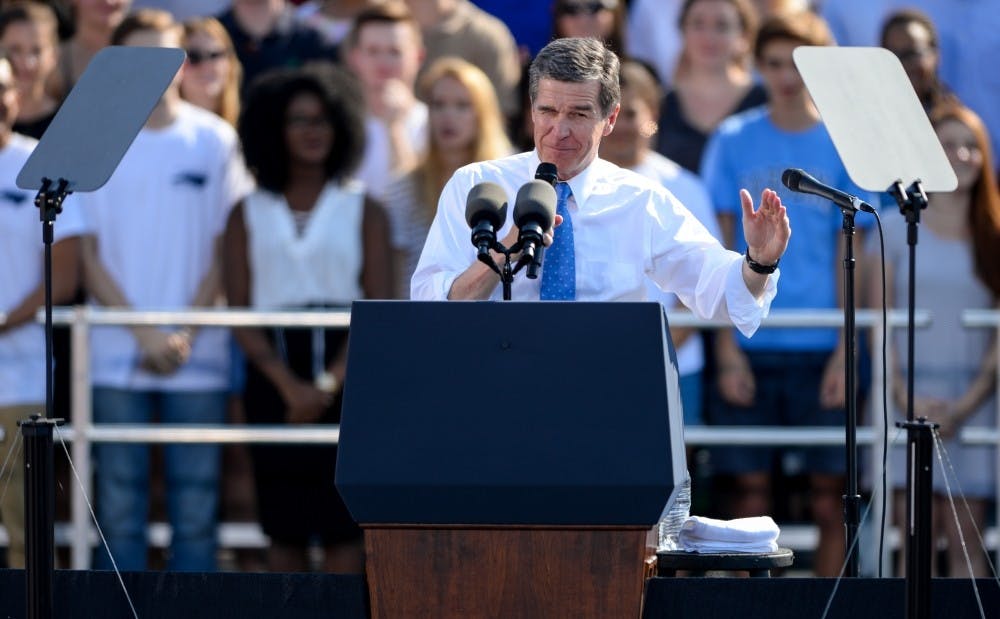Despite a lawsuit brought by Democratic Gov. Roy Cooper, a three-judge panel has allowed a new law requiring the state Senate to confirm cabinet appointments to remain in place.
Signed by former Republican Gov. Pat McCrory before the end of his term, the law gives the Republican-dominated legislature the power to confirm certain appointments. After being sworn in Jan. 1, Cooper sued to prevent this and other laws from coming into effect.
Earlier this month, Superior Court judges decided to temporarily block the law until there could be a full trial. Although this new ruling overrules that block, it does not mean confirmation hearings will begin right away. The ruling notes that Cooper first needs to submit his nominees for Senate approval, and that the deadline to do so is only May 15. Cooper's administration has said it will wait to do so until after another court hearing next month.
“It’s a reaction to Cooper’s victory, and that’s what looks so bad for the Republicans,” said Mac McCorkle, associate professor of the practice in the Sanford School of Public Policy. “The state is highly polarized—we’re very close—it’s not a clear majority state, and Cooper won, obviously—so that makes the partisan battles even more tense.”
Cooper has named eight appointees who are currently serving, but the court indicated this does not rise to the level of submission because there was no indication they would stay on permanently. The ruling also said Cooper can have these "acting officers" fulfill their duties in government pending the selection process.
Law Professor Joseph Blocher said there are significant separation of powers questions being considered in this case.
“The state constitution clearly provides that some gubernatorial appointments are subject to the advice and consent of the Senate, but the question is whether these positions are on that list," he said. "If the Senate goes too far in essentially vetoing the governor’s choices, that would raise serious constitutional problems with regard to separation of powers.”
Although the order says Cooper has so far failed to show "irreparable harm" to satisfy an injunction, the three judges said that door was still open if the legislature were to vote down one of this nominees.
Republican leaders have had conflicting views toward the judiciary throughout the process. At various times, they have accused the judiciary of "legislating from the bench" instead of being impartial arbiters.
However, after the lift of the block, two Republican leaders changed their tune.
“It is incredibly encouraging that this court has shown judicial restraint and rejected Governor Cooper’s extraordinary request,” said Senate President Pro Tempore Phil Berger and House Speaker Tim Moore in a statement.
McCorkle said the law could be seen as reasonable given that it reflects the senate confirmation process cabinet appointments are subject to on the federal level, a process that has proven controversial given Democratic opposition to some of President Donald Trump's nominees. However, he said the North Carolina constitution is not as clear on the matter.
McCorkle also noted that the Supreme Court now has a Democratic majority, which might eventually support the Cooper position as the lawsuit proceeds. Either way, the partisan debate is harmful to the state.
“Somebody should realize that the public isn’t going to stand for it,” McCorkle said. “Some party or faction is going to be seen as being obstructionist and not getting the people’s business done.”
Get The Chronicle straight to your inbox
Signup for our weekly newsletter. Cancel at any time.

